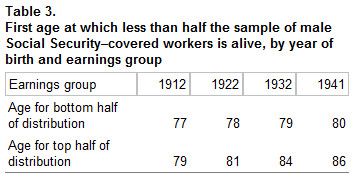 Federal Reserve chairman Ben Bernanke held a first ever news conference after the central bank’s meeting of Federal Open Market Committee which determines interest rates. His statement and the Q&A after were really boring as Bernanke droned in a monotone voice and filibustered questions. It took a bit, as David Dayen noted, to get to the meat, jobs, and what is the Fed doing to create them.
Federal Reserve chairman Ben Bernanke held a first ever news conference after the central bank’s meeting of Federal Open Market Committee which determines interest rates. His statement and the Q&A after were really boring as Bernanke droned in a monotone voice and filibustered questions. It took a bit, as David Dayen noted, to get to the meat, jobs, and what is the Fed doing to create them.
Bernanke answered that, while he has been engaged in extraordinary efforts to aid the economy, he had to be concerned about inflation as well. So basically, the Fed is failing at one of their mandates (maximizing employment) because they’re worried about their other mandate (price stability)… which they are ALSO FAILING AT! There’s also no awareness that, if inflation rises unacceptably, you can deal with it at that time. Refusing to stop the human suffering of mass unemployment because of the possibility of an inflation rise that can be dealt with if it happens is just a giveaway that the inflation mandate matters overwhelmingly more than the employment mandate.
Jobs? Never mind, too busy trying to control the inflation that hasn’t happened? Do these people shop or drive?
The first quarter growth rate report wasn’t encouraging either, coming in at a dismal 1.8% which was not unexpected due to “Higher commodity prices and winter blizzards that shuttered businesses and delayed construction were among the main causes of the slowdown, along with a large decrease in federal government spending and a sharp increase in imports, which are subtracted from output.” This will effect jobs no matter how optimist Bernanke is about the slow down being “transient”
(G)iven the ground lost during the Great Recession, the economy has a long way to go before its job market and output are back on track. And there are fears that the slow growth in the first quarter may weigh on job growth going forward, since employment trends tend to lag what happens in the rest of the economy.
“We may see employment growth weaken a little bit in the coming months, with more modest increases,” said Paul Dales, a senior United States economist for Capital Economics.
Dayen also reminds us that:
The first quarter saw a pretty modest decrease in spending – $10 billion from two continuing resolutions while negotiations on 2011 appropriations continued. If that was enough of a factor to contribute to sending growth down, then the impact will be the same in the next two quarters. And the fourth quarter, on the 2012 budget, is grand bargain time. So there’s no quarter that won’t be affected by contractionary fiscal policy. And don’t forget the debt limit, a failure to increase with will play havoc with the financial system and economic growth as well.
snip
Growth out of a recession is supposed to be sky-high. This homemade chart from Steve Benen is nice, but he knows that growth has sagged well below where a recovery should be for five straight quarters now. He even says it: “We can and must do much better than 1.8%, but we won’t if the nation pursues a conservative approach that focuses on one problem that doesn’t exist (inflation) rather than the problem that does exist (weak economic growth).”
How does this affect jobs? Job growth was actually above expectations for the quarter given this growth number. But realistically, you cannot expect to lower the unemployment rate without growth of 3% or higher. And as Paul Krugman noted yesterday, if you look at the employment-population ratio or other datum, you’ll see that job growth is totally stagnant. Which is in line with the stagnant growth in GDP.
Also a note about the Budget Battle in Congress, Senate Majority Leader Harry Reid (D-NV) decided to take the bull by the horns and ride the wave of protests at townhall meetings over Wisconsin Republican Rep Paul Ryan’s disastrous budget that passed the House on a strict partisan vote. Reid announced that he will bring the budget up for a vote in the Senate:
“Republicans seem to be in love with the Ryan budget. And they are going to have an opportunity here in the Senate to vote on the Ryan budget and see (how many) Republican senators like the Ryan budget as much as their House colleagues did, he said.
Reid spokesman Jon Summers said that the timing of the vote has not yet been determined.
The idea behind Reid’s plan is to force Senate Republicans to vote on the measure, which could put incumbents facing tough reelections on the spot.
The Ryan budget is not expected to pass the Senate, which is controlled by the Democrats.
“I would hope they do”, Reid said when asked if he thinks the Senate will reject the plan. “It would be one of the worst things to happen to this country if that came into effect.”
Talk of a Republican split emerged alst week when centrist Sen. Susan Collins (R-ME) said she would not vote for Ryan’s plan.


 Federal Reserve chairman Ben Bernanke held a first ever news conference after the central bank’s meeting of Federal Open Market Committee which determines interest rates. His statement and the Q&A after were really boring as Bernanke droned in a monotone voice and filibustered questions. It took a bit, as
Federal Reserve chairman Ben Bernanke held a first ever news conference after the central bank’s meeting of Federal Open Market Committee which determines interest rates. His statement and the Q&A after were really boring as Bernanke droned in a monotone voice and filibustered questions. It took a bit, as 
 What does “Winning The Future”, the inept slogan of the Obama 2012 campaign, really mean for the middle class and poor, especially the African American, Hispanic and other minority communities? What would re-electing Obama in 2012 mean for the economy? For Glenn Ford at the Black Agenda Report, it means a further economic decline, especially for the Black community where
What does “Winning The Future”, the inept slogan of the Obama 2012 campaign, really mean for the middle class and poor, especially the African American, Hispanic and other minority communities? What would re-electing Obama in 2012 mean for the economy? For Glenn Ford at the Black Agenda Report, it means a further economic decline, especially for the Black community where  Well, former President Bill Clinton thinks that the US economy could use a little help from a friend. For the first time since Pres. Clinton started his Global Initiative, it
Well, former President Bill Clinton thinks that the US economy could use a little help from a friend. For the first time since Pres. Clinton started his Global Initiative, it
Recent Comments